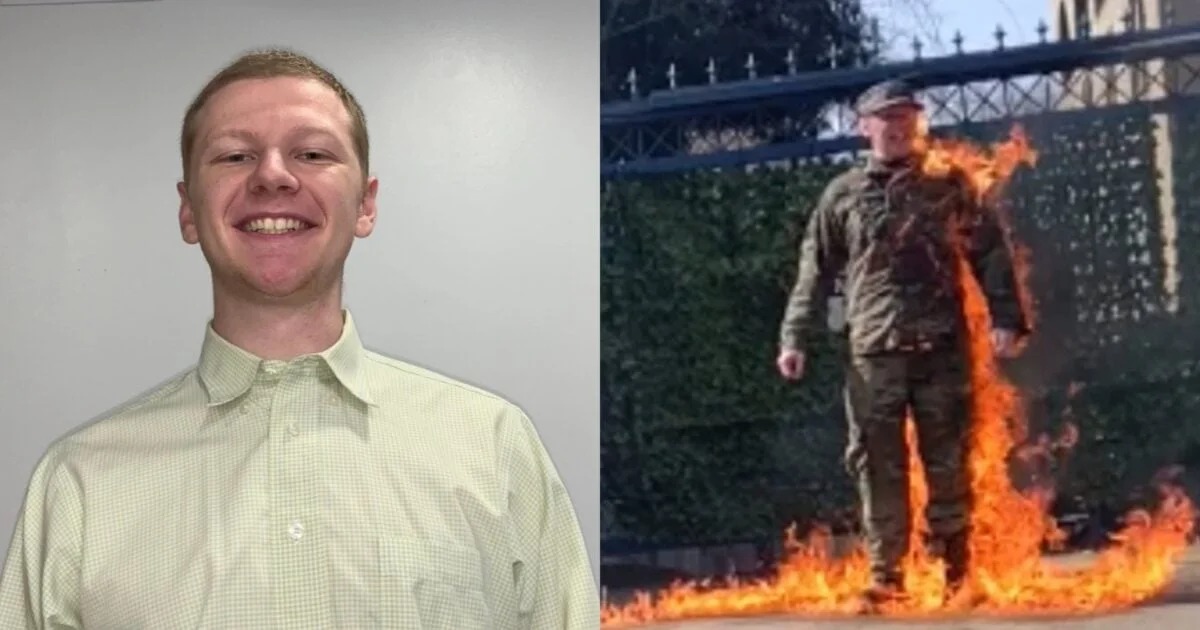An active-duty member of the US Air Force was critically injured on Sunday after setting himself ablaze outside the Israeli Embassy in Washington, DC while declaring that he “will no longer be complicit in genocide,” a person familiar with the matter told The Associated Press.
The man, whose name wasn’t immediately released, walked up to the embassy shortly before 1 pm and began livestreaming on the video streaming platform Twitch, the person said.
The incident has raised questions about the motivations behind such a drastic act and sparked concerns about the individual’s well-being. Authorities are currently investigating the circumstances surrounding the incident and seeking to understand the individual’s intentions and background.

US Air Force Member (Credits: Harmony Evans)
The incident occurred against the backdrop of heightened tensions in the region, particularly following recent events in Israel and the Palestinian territories. The conflict has garnered international attention and sparked debates about human rights and the treatment of civilians in conflict zones.
The individual’s decision to livestream the incident adds another layer of complexity to the situation, as it raises questions about the role of social media in broadcasting personal actions and statements.
Livestreaming platforms have been used in the past to document and share acts of protest, self-harm, and violence, highlighting the complex relationship between technology and individual expression.
The incident also underscores the challenges faced by individuals dealing with issues of conscience and morality within the context of military service.
The military often requires individuals to adhere to strict codes of conduct and loyalty, which can create internal conflicts for those who feel compelled to speak out against perceived injustices.
The individual’s declaration that he would no longer be complicit in genocide suggests a deep-seated conviction and a willingness to take extreme action to draw attention to his cause.
The term “genocide” is highly charged and evokes images of mass atrocities and human rights violations, suggesting that the individual may have been motivated by a sense of moral outrage or a desire to raise awareness about a specific issue.
The incident is likely to prompt discussions about mental health and emotional well-being, particularly among members of the military.
Serving in the military can be highly stressful and demanding, and individuals may struggle with issues such as depression, anxiety, and post-traumatic stress disorder (PTSD). Military authorities need to provide support and resources for service members facing mental health challenges.
Overall, the incident at the Israeli Embassy highlights the complex interplay of personal beliefs, mental health, and social media in the modern world. It serves as a reminder of the importance of empathy, understanding, and dialogue in addressing issues of conflict and injustice.























